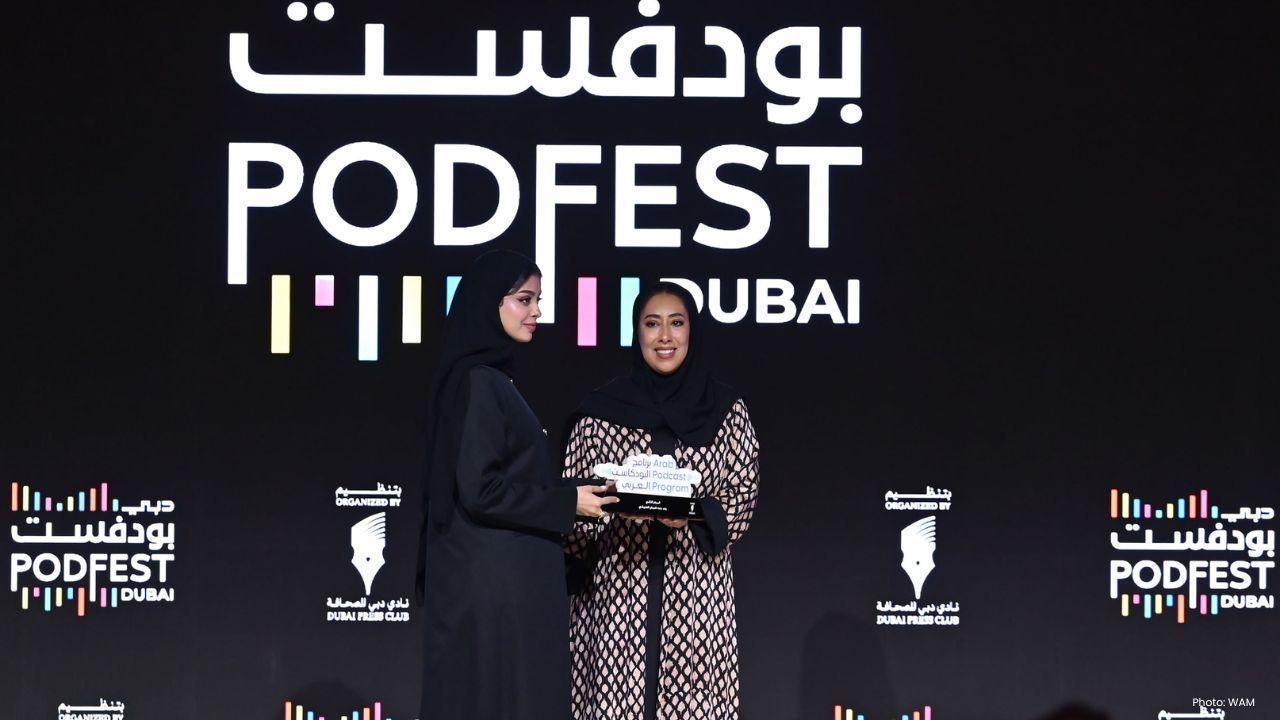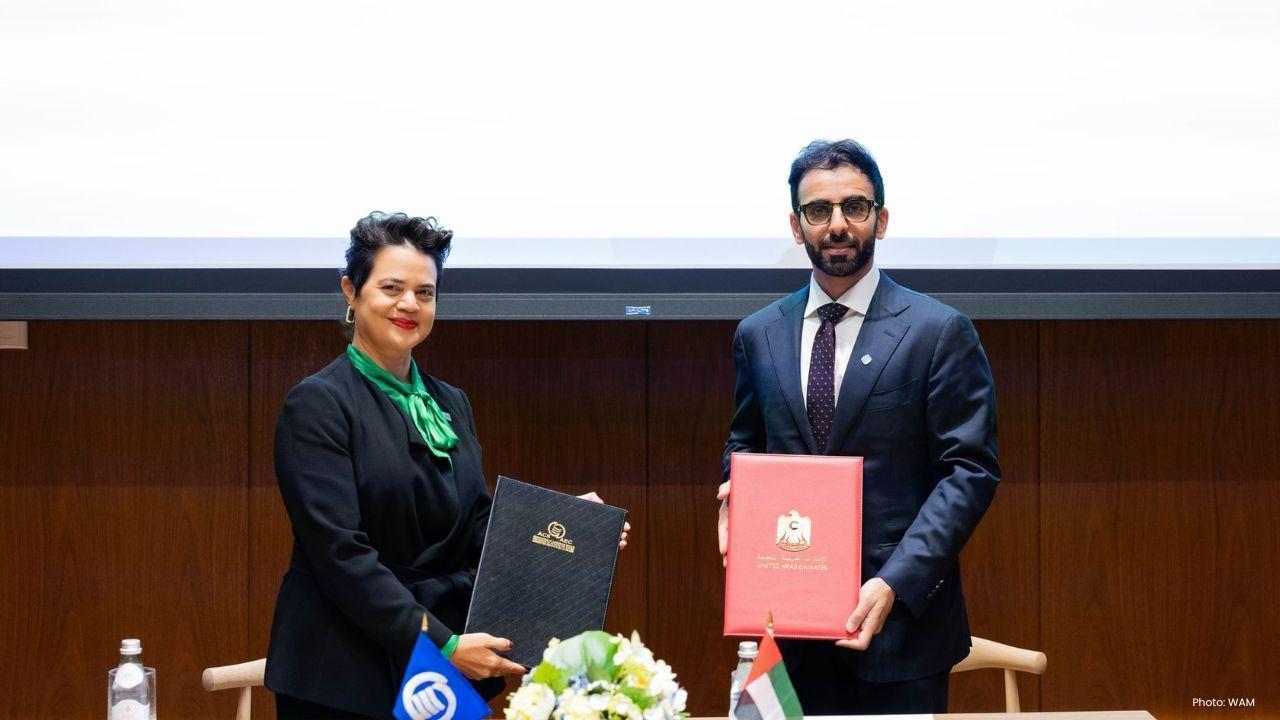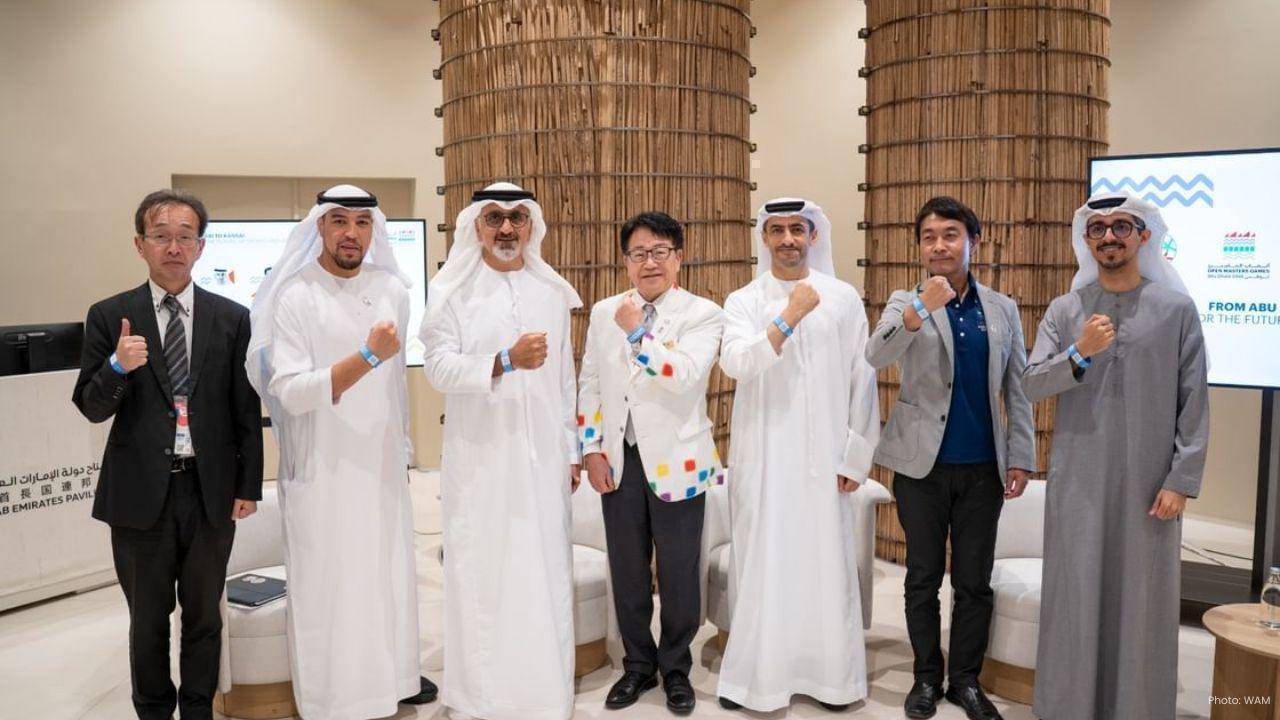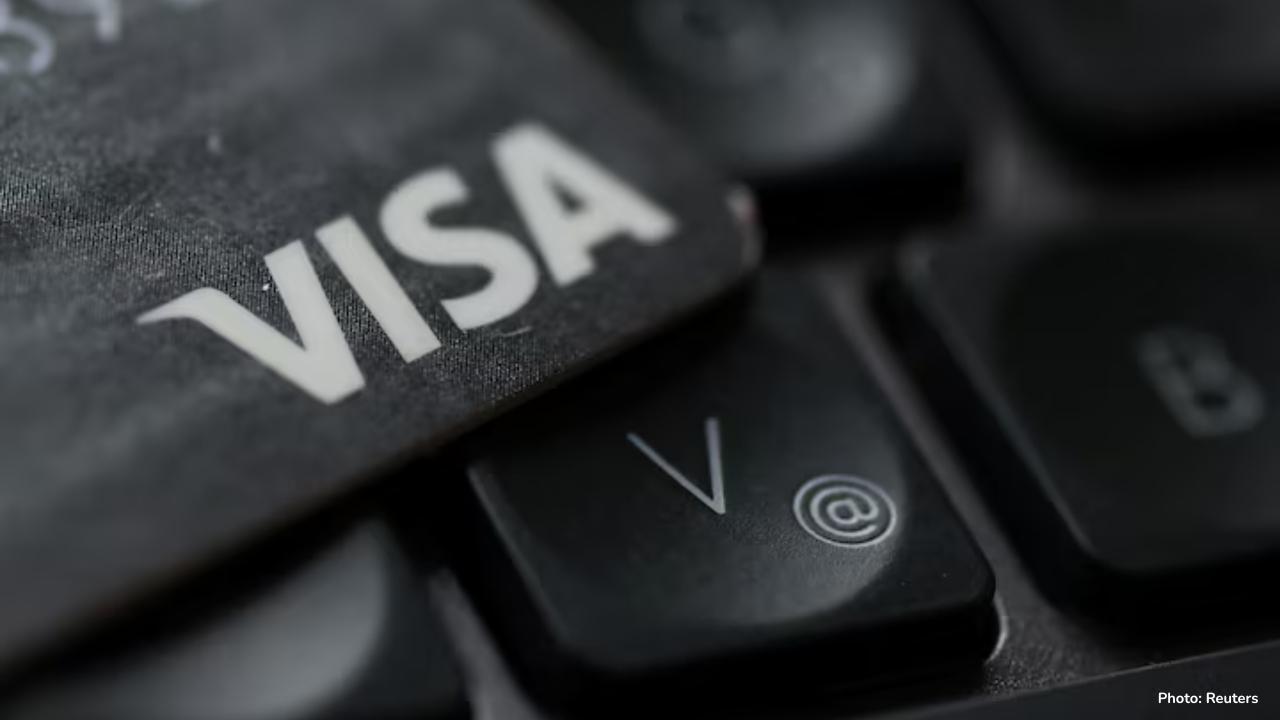
Post by : Priya
Photo:Reuters
In recent years, the United Arab Emirates (UAE) has rapidly embraced modern tools and innovations to strengthen its economy and improve daily operations in various sectors. From government services to transportation and finance, digital tools have helped improve productivity and reduce human error. Now, a new shift is taking place in the world of business. Companies across the UAE are starting to use smart technology to improve how they hire people and how they maintain safety in the workplace.
This move has gained strong support from both private businesses and government authorities. Business leaders say that smart technology helps them find better workers faster and keep employees safer at work. It is also seen as a big step forward for efficiency, transparency, and accountability in the business environment.
The Growing Role of Smart Tools in Business
The world of business is constantly changing. To stay ahead, companies must keep updating the way they work. One of the biggest changes today is the use of smart tools — systems that can help with tasks like sorting job applications, reviewing worker performance, and monitoring safety risks in real time.
Smart hiring tools, for example, can quickly scan thousands of job applications and pick out the most suitable candidates based on experience, skills, and other details. These tools can also be used during interviews to assess how well a person fits the job, not just by words but also by analyzing tone, behavior, and thinking patterns.
In the area of workplace safety, smart systems can monitor work areas using cameras, sensors, and alarms. They can detect risks such as fire hazards, dangerous equipment, or workers not following safety rules. These systems alert managers immediately, helping them take action before a small issue becomes a serious accident.
Why Business Leaders Support This Change
Many business leaders in the UAE have openly supported the use of smart technology. They say it is not just about keeping up with modern trends — it is about working smarter, saving time, and getting better results.
Faster Hiring Processes:
Traditionally, hiring new workers meant reading many resumes, conducting several interviews, and often choosing someone based on guesswork. Now, smart tools can do the first round of screening in minutes. This means that companies can focus their attention on top candidates from the beginning.
Better Candidate Match:
Because these systems look at many different aspects — not just education or experience — they help companies find people who are not only qualified but are also more likely to succeed in that company’s work culture.
Improved Safety and Fewer Accidents:
Smart systems in the workplace can check for dangers 24/7. This is especially helpful in industries like construction, manufacturing, and logistics, where safety risks are high. Fewer accidents also mean lower costs and better reputation for the company.
Business Viewpoint
Mr. Khalid Al Rashed, CEO of a large logistics company in Dubai, shared his view: “Using modern tools has helped us reduce our hiring time by almost 60%. We now get better people, and our safety incidents have dropped sharply. This is not just technology — this is smarter business.”
Success Stories from the UAE
Let us look at a few examples of how smart tools are helping businesses in the UAE.
1. Construction Sector – Dubai BuildTech
Dubai BuildTech, a medium-sized construction company, began using smart safety monitoring two years ago. They installed sensors on helmets and machines, which send alerts when something goes wrong.
“Before, we used to rely on site supervisors only. Now, we have real-time safety checks that prevent accidents before they happen,” said the company’s operations head.
2. Retail Sector – Abu Dhabi Fashion Mall
This popular mall started using a smart recruitment platform that reviews job applications automatically and recommends top candidates. They say their hiring success has gone up, and employee turnover has gone down.
“Our new workers perform better and stay longer. It saves us time and money,” said the HR manager, Laila Nasser.
3. Logistics Sector – Sharjah Freight Movers
In the logistics business, timely delivery is everything. This company used smart tracking tools to make sure drivers follow safe routes and get rest breaks. They also use hiring tools to pick the best drivers with safe driving records.
Government’s Role in Encouraging Smart Practices
The UAE government has long supported the use of digital tools across all sectors. It encourages businesses to invest in technology to improve operations and support economic growth. Government programs and funding options are available to help small and medium-sized enterprises (SMEs) adopt smart tools.
Public Policies & Partnerships
Authorities have launched several national programs to support innovation and technology in business. Smart workplace practices are also being linked with national goals like employee well-being, productivity growth, and long-term sustainability.
One government official, speaking at a recent business forum in Abu Dhabi, said, “By supporting the use of smart tools in business, we are building a stronger, safer, and more competitive economy.”
Employee Perspective: A Better Work Environment
Workers in various industries say they also benefit from the use of smart tools. They feel safer, more informed, and better treated during the hiring process.
Fair Hiring:
With hiring based on skills and behavior rather than just resumes, workers feel that job selection is fairer and more transparent.
Workplace Safety:
Sensors, safety alarms, and tracking tools give workers peace of mind. They know that their well-being is being monitored and protected.
Training and Growth:
Smart tools are also being used to identify areas where workers need more training. This helps employees grow and do better in their jobs.
Rashid, a warehouse worker in Dubai, said, “Now they don’t just hire people with big degrees. They hire people who can really do the work. We also get training alerts based on our work style.”
Challenges and Concerns
Despite the many benefits, there are some concerns too. Some workers worry about being watched all the time. Others fear that decisions made by machines might miss the human side of things. Business leaders must balance technology with human understanding.
Experts also warn that not every company may be ready to adopt these tools. There can be high costs in the beginning, and staff must be trained properly to use these systems well.
Dr. Noura Al Mansoori, a workplace expert from UAE University, said, “We must use smart tools with care. They should help people, not replace them. A good balance is key.”
UAE business news










OpenAI's Revenue Soars to $4.3 Billion in First Half of 2025
OpenAI's revenue reaches $4.3 billion in the first half of 2025, marking a 16% increase from the pre

UAE Leaders Send Condolences to Saudi King Over Princess Abta's Death
UAE rulers and crown princes sent heartfelt messages to King Salman, mourning the passing of Princes

Brazil's Surplus Clean Energy Attracts Crypto Miners
Brazil's excess renewable energy is luring cryptocurrency miners. Companies like Tether and Renova E

Visa Tests Stablecoins to Make Global Payments Faster
Visa is testing stablecoins for international payments, aiming to speed up transactions and reduce t

Opera Unveils Neon AI Browser for Smarter Web Browsing
Opera introduces Neon, an AI-powered browser that automates tasks and enhances privacy, aiming to re

Albanese Visits Sheikh Zayed Grand Mosque in Abu Dhabi
Australian PM Albanese tours Sheikh Zayed Grand Mosque, highlighting peace, tolerance, and cultural